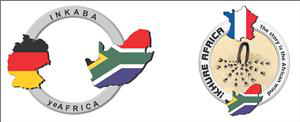Speaker
Mr
Barry Morkel
(AEON - Karoo Shale Gas Research Programme)
Description
The confluence of three key technological and social-economic drivers have given rise to the advent of the new ‘Golden Age of Gas’ , as articulated in the new global discourse of unconventional oil and gas, and in particular what has been described as the ‘Shale Gas Revolution’ . These drivers include the technological advances in multi-directional and horizontal drilling and hydraulic fracturing; The need to identify alternative energy sources in mitigation of its anticipated economic and political impacts; as well as the availability of new energy alternatives. The latter, in particular being considered critical to sustained economic growth.
In understanding the impact of these three drivers on the broader social, economic and political landscape for local, national, and international geo-politics it is important that the discourse takes into consideration a holistic outlook on both the risks and the implications of this new ‘Shale Gas Revolution’ or ‘Game Changer’ for local communities, nations and civilization as a whole.
It is anticipated that this development will bring with it profound geopolitical implications across the globe, presenting both opportunities and threats on a global scale, with far-reaching implications for socio-political stability and ecological sustainability.
In South Africa in particular, critical consideration must be given to an assessment of social, economic and political drivers and risks associated with the prospect of advancing the development of Shale Gas, whilst considering the potential ecological and natural resource implications. In this regard, the study seeks to identify critical socio-economic and political risk factors which should be considered, managed and mitigated, as part of the ongoing discourse on shale gas development in South Africa, and within the Karoo Basin in particular.
This study will therefore attempt to undertake three (3) initial tasks within the broader context of defining the socio-economic and political landscape for Shale Gas development in the Karoo Basin of South Africa. These are:
1. Contextualize the socio-economic and broader political drivers within the National, Regional and Local setting of the Eastern Karoo, in relation to proposed shale gas development.
2. Identify and categorize associated risks, within the aforementioned context as pertaining to the proposed development of shale gas in the region.
3. Highlight key mitigation factors which would need to be taken into consideration by policy makers and regulators, across the various spheres of government (Local, Provincial, and; National); and
4. In synthesizing the above, advance a set of preliminary guidelines for policy makers at National, Provincial and Local level.
5. Citizen science, crowdsourcing etc
This study forms part of ongoing research being conducted by the author, as part of the AEON-ESSRI at NMMU and is informed by existing data on the localities identified in the Eastern Karoo, as well as data collected from interviews and workshops conducted with local communities in the affected localities as part of the Karoo Shale Gas Baseline Study.
Primary author
Mr
Barry Morkel
(AEON - Karoo Shale Gas Research Programme)
Co-author
Prof.
Maarten De Wit
(AEON - Karoo Shale Gas Research Programme)

